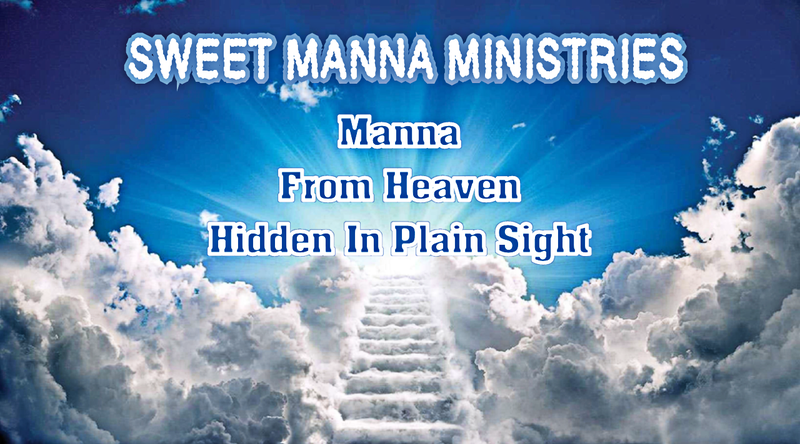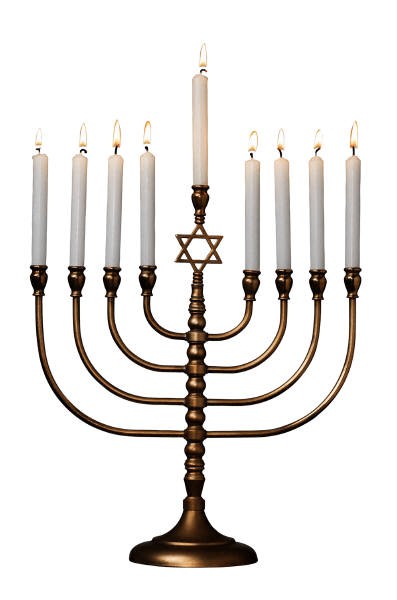The Teaching Ministry of
Rev. Marjorie Kummrow
Bible Studies
This ministry has made a choice to be "Biblically correct" as opposed to "politically correct" therefore we have forfeited the non-profit status available to us. Please note that all donations to this ministry are not tax deductible. Thank you for your support.
Jesus and Hanukkah
Yeshua, (Jesus) did not spend a lot of time in Jerusalem. Most of His ministry is recorded to be around Galilee. He would have made His pilgrimage to Jerusalem on the appointed feast days, such as Pesach or Passover, Shavuot or Pentecost, Yom Kippur or The Day of Atonement, Rosh HaShanah or The New Year also known as Yom Teruah or The Feast of Trumpets, and Sukkot or The Feast of Tabernacles.
He is however found in Jerusalem on the 25th of Kislev. Kislev is the ninth month on the Biblical calendar and corresponds to November and December on our Gregorian calendar. We are told in John, that Jesus went into the Temple to join in the celebration of the festival of dedication. This celebration would have been the festival of lights or Hanukkah. The word Hanukkah means dedication. Jesus went into the Temple to celebrated Hanukkah!
John 10:22,23 And it was at Jerusalem the feast of the dedication, and it was winter. And Jesus walked in the temple in Solomon's porch.
Although Hanukkah was not one of the required feast days, it had become a tradition. One hundred and sixty years before the birth of Jesus the temple had been rededicated after it had been desecrated by the evil Emperor Antiochus of Syria. The Temple had been desecrated three years prior to the dedication.
Antiochus emptied the Temple in Jerusalem of all its holy treasures and set up an Idol on the altar in the Temple. From the book of Maccabees we read: After Antiochus had defeated Egypt in the year one hundred and forty three [circa 170 BCE], he returned and went up to Israel and to Jerusalem with a strong force. He insolently invaded the sanctuary and took away the golden altar, the lampstand for the light with all its fixtures, the offering table, the cups and the bowls, the golden censers, the curtain, the crowns, and the golden ornament on the façade of the temple. He stripped of everything, and took away the gold and silver and the precious vessels; he also took all the hidden treasures he could find. After taking all these things, he went back to his own country, and after he had spoken with great arrogance and shed much blood. And there was great mourning for Israel, in every place where they dwelt. (1 Maccabees 1:20–25)
He further desecrated the Temple by sacrificing a pig on the altar. This evil Emperor set new laws in place that were punishable by death. The Jews were told to worship idols, stop studying the Torah, to give up the observance of the Sabbath and to stop following the commandments. Unfortunately, many Jews chose to assimilate into the culture of the Syrians. Horrific stories are told about this evil time, for instance, mothers were told not to circumcise their male babies. If a mother went against this edict, the child would be killed and hung around the mother’s neck as punishment. Those Jews that refused to obey the new laws either fled or were put to death.
It took three years for a small band of religious freedom fighters lead by Judah Maccabee to overtake the Syrian army that they were fiercely outnumbered by. An elderly Levi priest named Mattahias decided to stand up against the mightiest known army of the day. He and his five sons gathered together with many others to fight for their beliefs. Mattahias’ son Judah led this band of freedom fighters after the death of his father. Although they were outnumbered seven to one, they never-the-less, prevailed and defeated the mighty army of Antiochus.
Victorious, the Maccabees went to the Temple to re-light the eternal lamp and to make the Temple holy again. They found however that there was only enough oil to last for one day. The process of making more oil would take eight days. They lit the lamp and went about the business of sanctifying more oil when a miracle took place. The eternal lamp kept burning for the entire eight days until the new oil was ready. The re-dedication of the Temple took place exactly three years to the day from the time that it had been desecrated by Antiochus. From that day forward, the Jews celebrate Hanukkah in memory of the miracle that God did keeping the eternal light burning in the Temple for eight days on one day’s supply.
The nine branch menorah that is lit at sundown for eight days has what is called a Shamash or servant candle in the center of the nine branches. The servant candle is lit first and it is then used to light the other eight candles which represent the eight days that the oil kept burning. Each night another candle is lit until all eight candles and the servant candle stand as light against the darkness. It is generally placed on a stand and then placed in a window for its dancing lights to be seen and to contrast the dark of the night. Perhaps it was this imagery that Jesus was referring to when He said, “no one when he has lit a lamp puts it in a secret place or under a basket, but on a lamp stand, that those who come in may see the light."
With the lighting of the candles each night, there are three blessings that are said. They are as follows:
First blessing, Blessed are You Lord, our God, King of the Universe, Who has sanctified us with His commandments and commanded us to kindle the Hanukkah light. Amen.
Second blessing, Blessed are You Lord, our King of the Universe, Who did miracles for our forefathers in those days and at this season. Amen.
Third blessing, Blessed are You, Lord, our God King of the Universe, Who has kept us alive sustained us, and brought us to this season. Amen.
Jesus was not well received when He entered the Temple and stood in Solomon’s porch for Hanukkah. The Jews surrounded Him and wanted Him to identify Himself as the Messiah. He more or less told them that He had already done that, but they did not believe Him anyway. It was here in Solomon’s porch that Jesus had identified Himself as “the light of the world” at another time. Jesus is indeed the Shamash, our servant, the eternal light that sheds light in a world of darkness. Unfortunately, He was not welcome there in the Temple and they began to stone him for what they perceived to be blasphemy.
What is the lesson of Hanukkah that we can learn for today? As our world becomes darker and darker, and the laws of our land have become in direct opposition to the laws of God, we need to guard against assimilation into this world’s system. We like the Maccabee’s need to stand up against unrighteousness, even to the point of losing our lives if necessary. Even when the odds are against us, if we are on Gods side then we have a majority. The Holy things of God deserve our allegiance and they are to be protected. No one can plunder your temple and take from you the treasure that is hidden there. They can take your life, but your light is eternal.
Jesus is the eternal lamp of the world that will never go out. He is our servant candle who deposits the oil of the Holy Spirit into each heart that believes. He is the one that lights the wick in our hearts and starts an eternal flame. Our hearts are His Temple now and He is always welcome to stay. During this eight day Hanukkah season let us rededicate our Temple to the “light of the world” and bless God for our sanctification, for all the miracles that He continues to do, and most of all for sustaining us from year to year. I pray that each of us let our light so shine in this world of darkness, that it will give glory to our Father who is in heaven.
Happy Hanukkah Everyone!
Rev. Marjorie
Hanukkah
Jesus and Hanukkah
By Rev. Marjorie
Part I
Contact us to be put on our email list at mailinglist@sweetmanna.org or make a prayer request at prayerwarrior@sweetmanna.org

